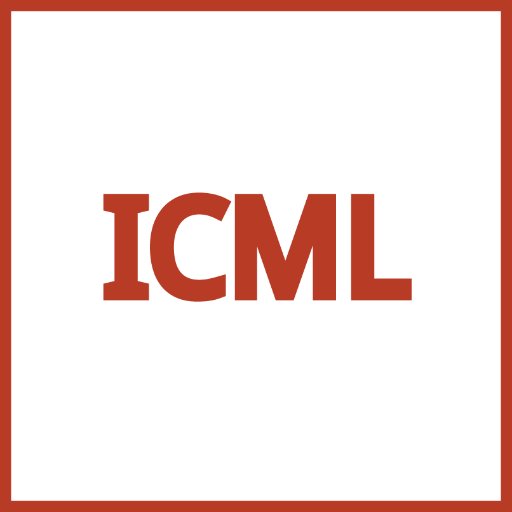
icml 1989 论文列表Proceedings of the Sixth International Workshop on Machine Learning (ML 1989), Cornell University, Ithaca, New York, USA, June 26-27, 1989. |
Overcoming Feature Space Bias in a Reactive Environment.
A Bootstrapping Approach to Concept Clustering.
Building A Learning Bias from Perceived Dependencies.
Screening Hypotheses with Explicit Bias.
Generalized Recursive Splitting Algorithms for Learning Hybrid Concepts.
Compiling Learning Vocabulary from a Performance System Description.
An Object-Oriented Representation for Search algorithms.
A Knowledge-Level Analysis of Informing.
Automatic Construction of a Hierarchical Generate-and-Test Algorithm.
Declarative Bias for Structural Domains.
Concept Discovery Through Utilization of Invariance Embedded in the Description Language.
Constructive Induction by Analogy.
Constructive Induction Framework.
Evaluating Bias During Pac-Learning.
Evaluating alternative Instance Representations.
Comparing Systems and analyzing Functions to Improve Constructive Induction.
Refining Representations to Improve Problem Solving Quality.
A Mathematical Framework for Studying Representation.
Towards a Formal Analysis of EBL.
Higher-Order and Modal Logic as a Framework for Explanation-Based Generalization.
Enriching Vocabularies by Generalizing Explanation Structures.
Knowledge-Based Feature Generation.
Reformation from State Space to Reduction Space.
A Theory of Justified Reformulations.
Labor Saving New Distinctions.
Representational Issues in Machine Learning.
Participatory Learning: A Constructivist Model.
An Incremental Genetic Algorithm for Real-Time Learning.
Atoms of Learning II: Adaptive Strategies A Study of Two-Person Zero-Sum Competition.
Adaptive Learning of Decision-Theoretic Search Control Knowledge.
Information Filters and Their Implementation in the SYLLOG System.
Incremental Clustering by Minimizing Representation Length.
Reducing Redundant Learning.
Cost-Sensitive Concept Learning of Sensor Use in Approach ad Recognition.
Incremental, Instance-Based Learning of Independent and Graded Concept Descriptions.
An Exploration Into Incremental Learning: the INFLUENCE System.
Focused Concept Formation.
Using Multiple Representations to Improve Inductive Bias: Gray and Binary Coding for Genetic Algorithms.
Incremental Concept Formation with Composite Objects.
Incremental Batch Learning.
Improved Training Via Incremental Learning.
Uncertainty Based Selection of Learning Experiences.
A Role for Anticipation in Reactive Systems that Learn.
A Formal Framework for Learning in Embedded Systems.
Tower of Hanoi with Connectionist Networks: Learning New Features.
Incremental Learning of Control Strategies with Genetic algorithms.
Knowledge Base Refinement as Improving an Incorrect, Inconsistent and Incomplete Domain Theory.
Some Results on the Complexity of Knowledge-Based Refinement.
Using Determinations in EBL: A Solution to the incomplete Theory Problem.
Imprecise Concept Learning within a Growing Language.
Discovering Mathematical Operation Definitions.
Toward Automated Rational Reconstruction: A Case Study.
Identifying Knowledge Base Deficiencies by Observing User Behavior.
Controlling Search for the Consequences of New Information During Knowledge Integration.
Exemplar-Based Theory Rejection: An Approach to the Experience Consistency Problem.
The Role of Experimentation in Scientific Theory Revision.
Using Domain Knowledge to Aid Scientific Theory Revision.
Theory Formation by Abduction: Initial Results of a Case Study Based on the Chemical Revolution.
Knowledge Base Refinement and Theory Revision.
On Becoming Reactive.
Explanation-Based Learning of Reactive Operations.
Learning by Analyzing Fortuitous Occurrences.
Learning from Opportunity.
Learning Hierarchies of Abstraction Spaces.
Discovering Admissible Search Heuristics by Abstracting and Optimizing.
Learning Appropriate Abstractions for Planning in Formation Problems.
Conceptual Clustering of Mean-Ends Plans.
Using Concept Hierarchies to Organize Plan Knowledge.
Planning Approximate Plans for Use in the Real World.
Approximating Learned Search Control Knowledge.
Discovering Problem Solving Strategies: What Humans Do and Machines Don't (Yet).
Learning to Retrieve Useful Information for Problem Solving.
Learning to Recognize Plans Involving Affect.
Using Learning to Recover Side-Effects of Operators in Robotics.
Learning Invariants from Explanations.
Learning Procedural Knowledge in the EBG Context.
Issues in the Justification-Based Diagnosis of Planning Failures.
Learning Tactical Plans for Pilot Aiding.
Learning Decision Rules for scheduling Problems: A Classifier Hybrid Approach.
An Empirical Analysis of EBL Approaches for Learning Plan Schemata.
Learning to Plan in Complex Domains.
Bacon, Data Analysis and Artificial Intelligence.
Processing Issues in Comparisons of Symbolic and Connectionist Learning Systems.
Unknown Attribute Values in Induction.
Signal Detection Theory: Valuable Tools for Evaluating Inductive Learning.
An Ounce of Knowledge is Worth a Ton of Data: Quantitative studies of the Trade-Off between Expertise and Data Based On Statistically Well-Founded Empirical Induction.
Knowledge Intensive Induction.
Induction of Decision Trees from Inconclusive Data.
Experiments in Robot Learning.
Learning the Behavior of Dynamical Systems form Examples.
Empirical Substructure Discovery.
The Induction of Probabilistic Rule Sets - The Itrule Algorithm.
Limitations on Inductive Learning.
Two Algorithms That Learn DNF by Discovering Relevant Features.
An Experimental Comparison of Human and Machine Learning Formalisms.
What Good Are Experiments?.
Inductive Learning with BCT.
New Empirical Learning Mechanisms Perform Significantly Better in Real Life Domains.
Learning Classification Rules Using Bayes.
Combining Explanation-Based Learning and Artificial Neural Networks.
A Schema for an Integrated Learning System.
Improving Explanation-Based Indexing with Empirical Learning.
Error Correction in Constructive Induction.
A Framework for Improving Efficiency and Accuracy.
Using Domain Knowledge to Improve Inductive Learning Algorithms for Diagnosis.
Explanation-Based Learning with Week Domain Theories.
Integrating Learning in a Neural Network.
"Learning by Instruction" in connectionist Systems.
Knowledge Acquisition Planning: Results and Prospects.
Explanation-Based Acceleration of Similarity-Based Learning.
Improving Decision-Making on the Basis of Experience.
A Retrieval Model Using Feature Selection.
Adaptation-Based Explanation: Explanations as Cases.
Reducing Search and Learning Goal Preferences.
Explanation Based Learning as Constrained Search.
Augmenting Domain Theory for Explanation-Based Generalization.
Learning from Plausible Explanations.
Finding New Rules for Incomplete Theories: Explicit Biases for Induction with Contextual Information.
Combining Empirical and Analytical Learning with Version Spaces.
One-Sided Algorithms for Integrating Empirical and Explanation-Based Learning.
Deduction in Top-Down Inductive Learning.
Combining Case-Based Reasoning, Explanation-Based Learning, and Learning form Instruction.
A Description of Preference Criterion in Constructive Learning: A Discussion of Basis Issues.
Multi-Strategy Learning in Nonhomongeneous Domain Theories.
A Tight Integration of Deductive Learning.
Conceptual Clustering of Explanations.
Induction Over the Unexplained: Integrated Learning of Concepts with Both Explainable and Conventional Aspects.
Unifying Themes in Empirical and Explanation-Based Learning.

